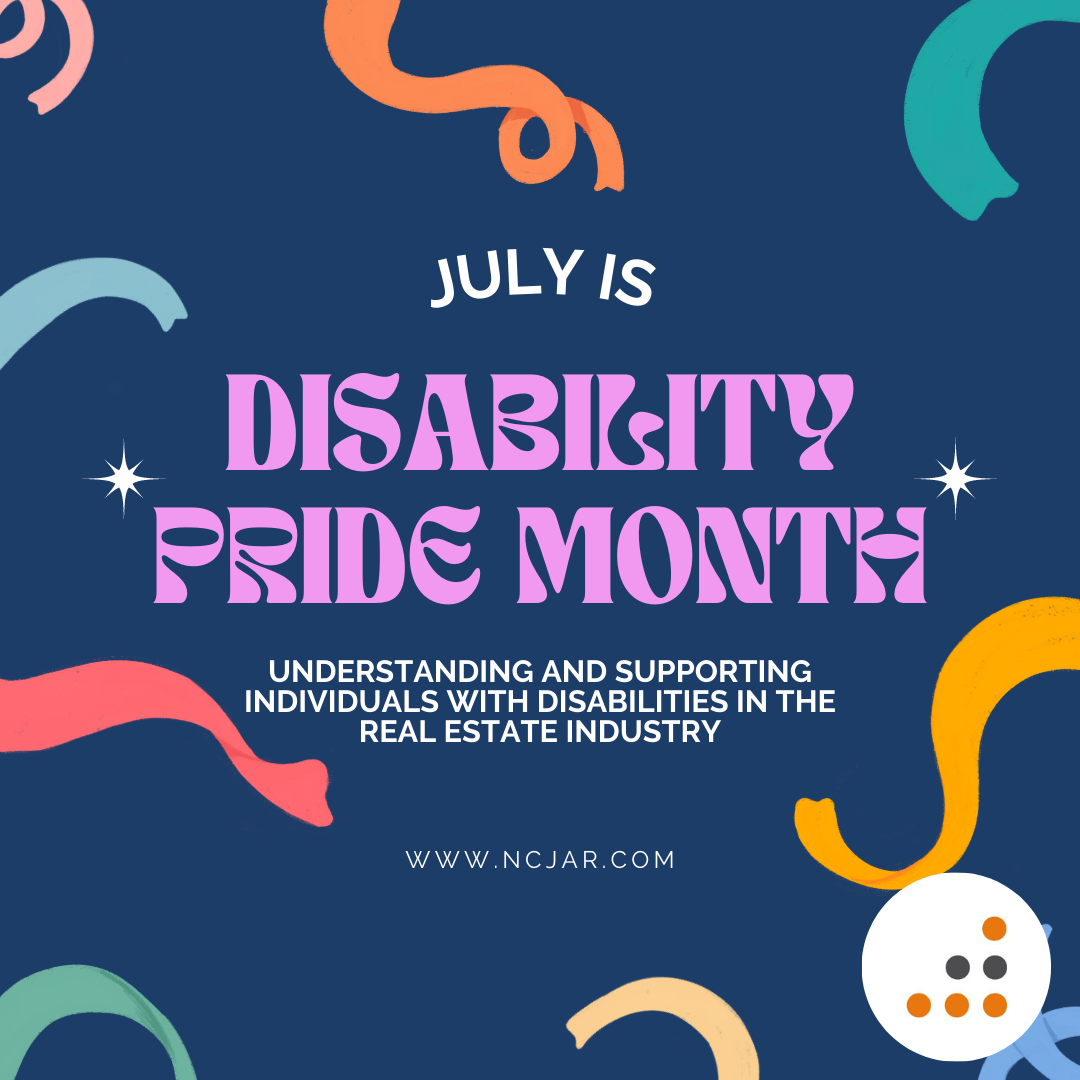 Every year, disability advocacy organizations around the world celebrate Disability Pride Month. The month-long celebration is held every July in the United States to raise awareness and promote the various contributions of people with disabilities. In real estate, it is important to understand and support individuals with disabilities to provide them with safe and accessible housing. So as NCJAR joins the global community in celebrating Disability Pride Month, let's take a moment to look at how the real estate industry can be more welcoming to people with disabilities.
Every year, disability advocacy organizations around the world celebrate Disability Pride Month. The month-long celebration is held every July in the United States to raise awareness and promote the various contributions of people with disabilities. In real estate, it is important to understand and support individuals with disabilities to provide them with safe and accessible housing. So as NCJAR joins the global community in celebrating Disability Pride Month, let's take a moment to look at how the real estate industry can be more welcoming to people with disabilities.
The Fair Housing Act (FHA) of 1968, as amended in 1988, prohibits discrimination against individuals with disabilities in all aspects of real estate transactions, including rental, sale, and financing of housing. The law requires realtors to make reasonable accommodations for people with disabilities to ensure that they receive housing opportunities like everyone else. To comply, realtors must understand what constitutes a reasonable accommodation, how to request an accommodation, and the requirements and limitations under the FHA.
Real estate professionals can assist in creating accessible properties by understanding the requirements of the Americans with Disabilities Act (ADA). The act bans discrimination against individuals with disabilities in employment, communication, accommodations, facilities, and transportation. To create accessible properties, realtors must know the types and locations of appropriate accessibility features, which include widened doorways, grab bars, and accessible bathrooms. This knowledge can help realtors identify properties that meet the needs of people with disabilities.
Many people with disabilities continue to face social stigmatization that affects their participation in society. This marginalization can lead to a lack of understanding of their needs and legal rights. Educating the public about the various types of disabilities and their accommodation needs can help reduce this stigmatization. Real estate companies can lead the way in increasing public awareness by publishing blogs, social media posts, and other educational materials.
Although the real estate industry is legally required to provide reasonable accommodations to people with disabilities, sensitivity training can play a vital role in improving service delivery. Sensitivity training sessions can help real estate staff understand historical and social contexts that have harmed people with disabilities and identify ways to avoid perceived barriers. Realtors who are keen to develop their skills can sign up for training programs, such as the National Association of REALTORS® (NAR) REALTORS® with Disabilities Certification.
Real estate companies should also ensure that their business practices are accessible to individuals with disabilities. This means that all forms of communication, including their website, social media, and other marketing tools, should be fully accessible to everyone, regardless of their disabilities. Furthermore, real estate companies should ensure that their offices are accessible to individuals with disabilities by providing wide doorways, elevated desks, and alternative forms of communication.
Disability Pride Month is an opportunity for realtors to reflect on ways in which they can better support people with disabilities, both as professionals and community members. By working towards accessibility and inclusive practices, the real estate industry is confident in creating an environment where everyone is welcome. These initiatives promote social integration and allow people with disabilities to enjoy equal opportunities in the housing market. So, as we mark Disability Pride Month, let us all contribute to the movement by making housing more accessible, promoting inclusion, and celebrating the achievements of individuals with disabilities in the real estate industry.